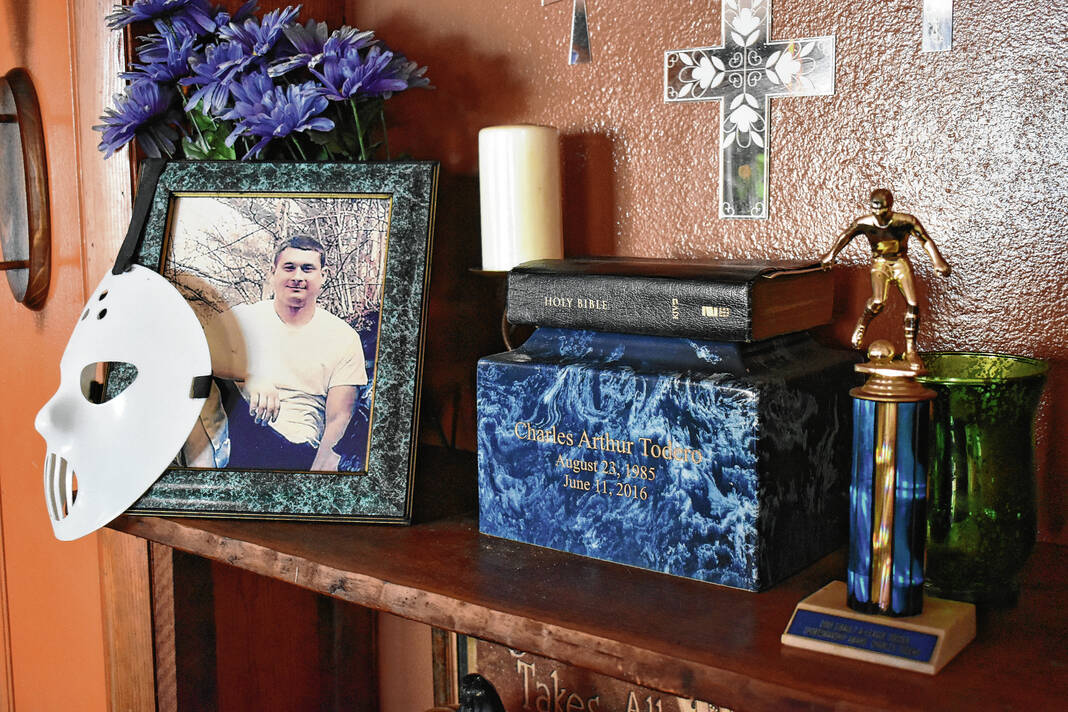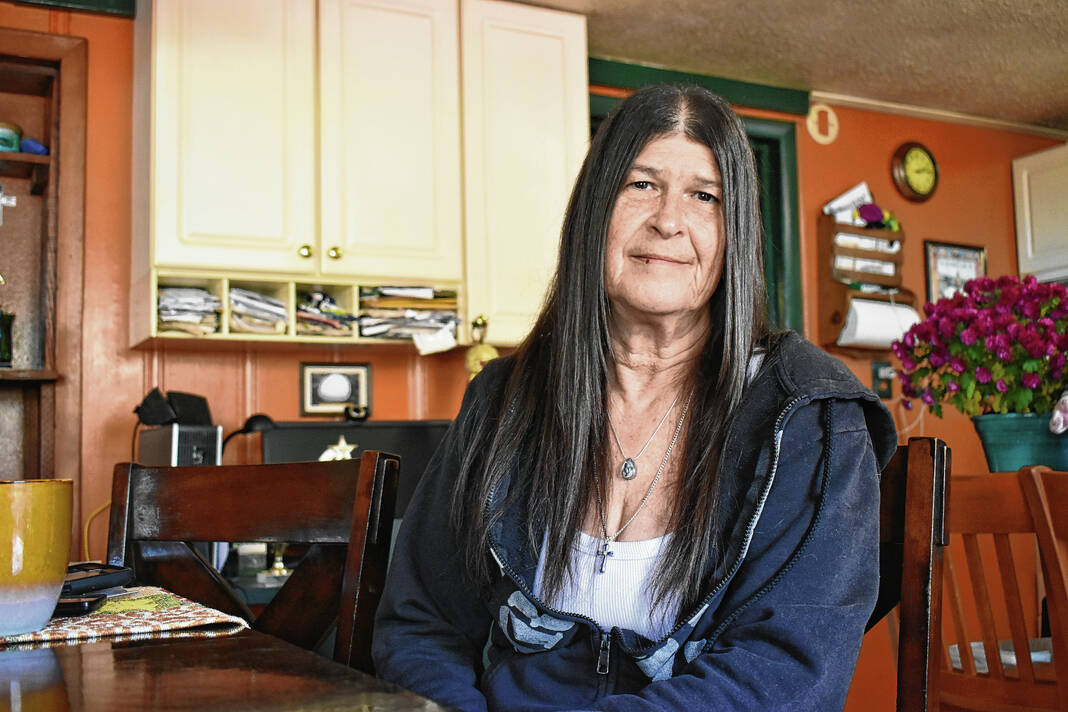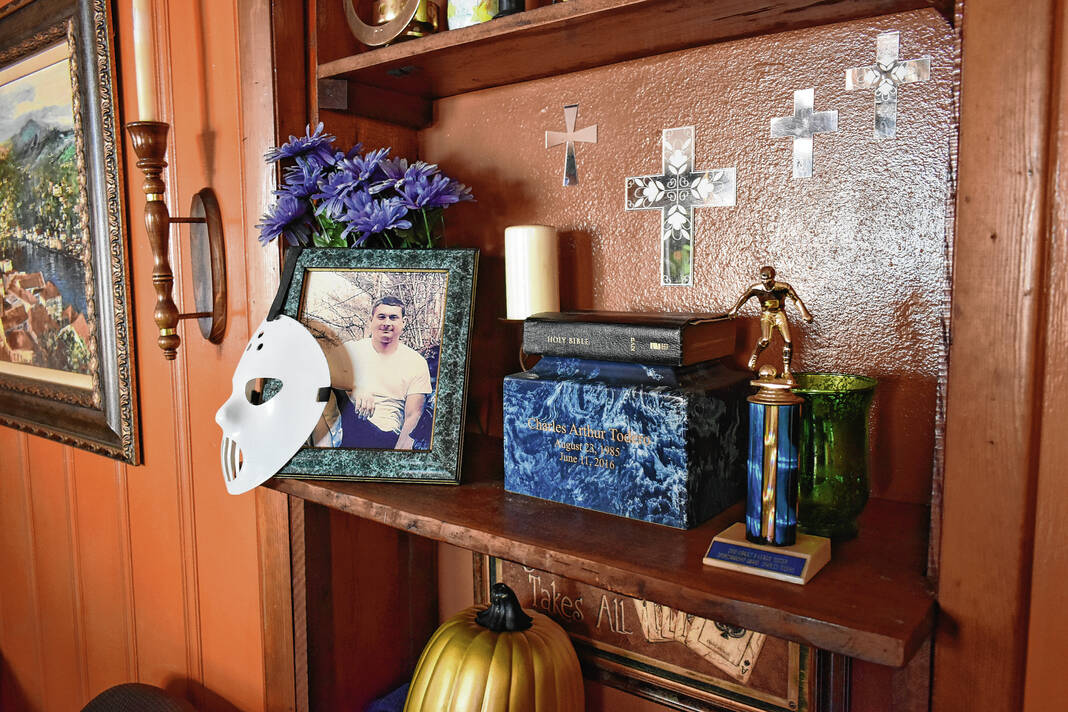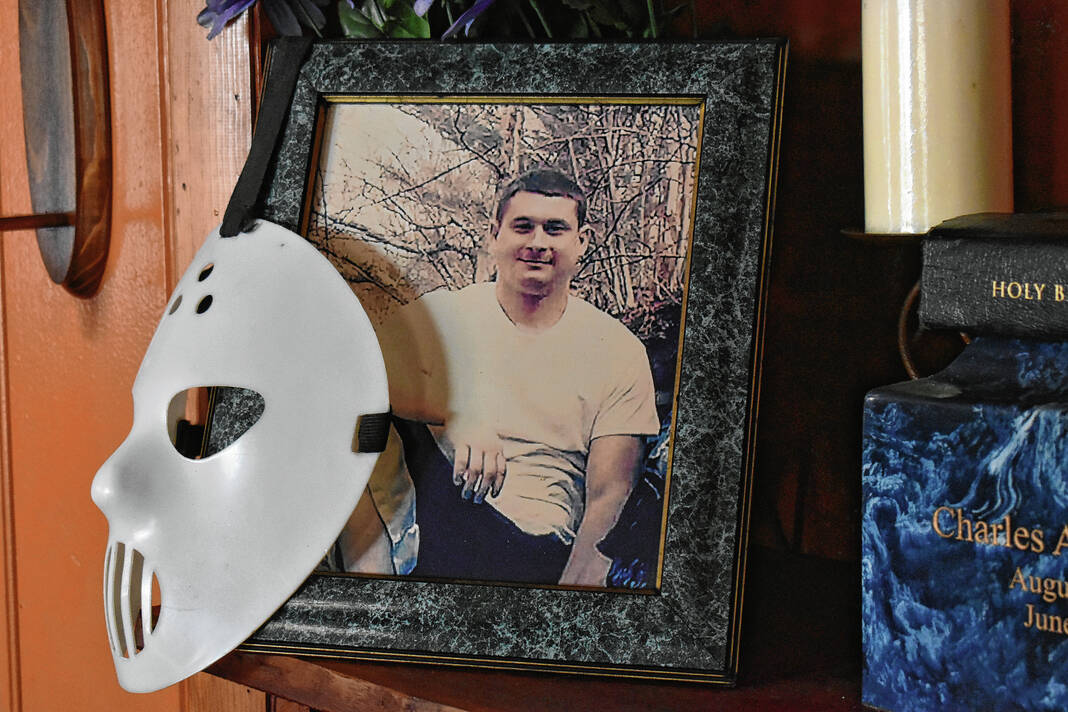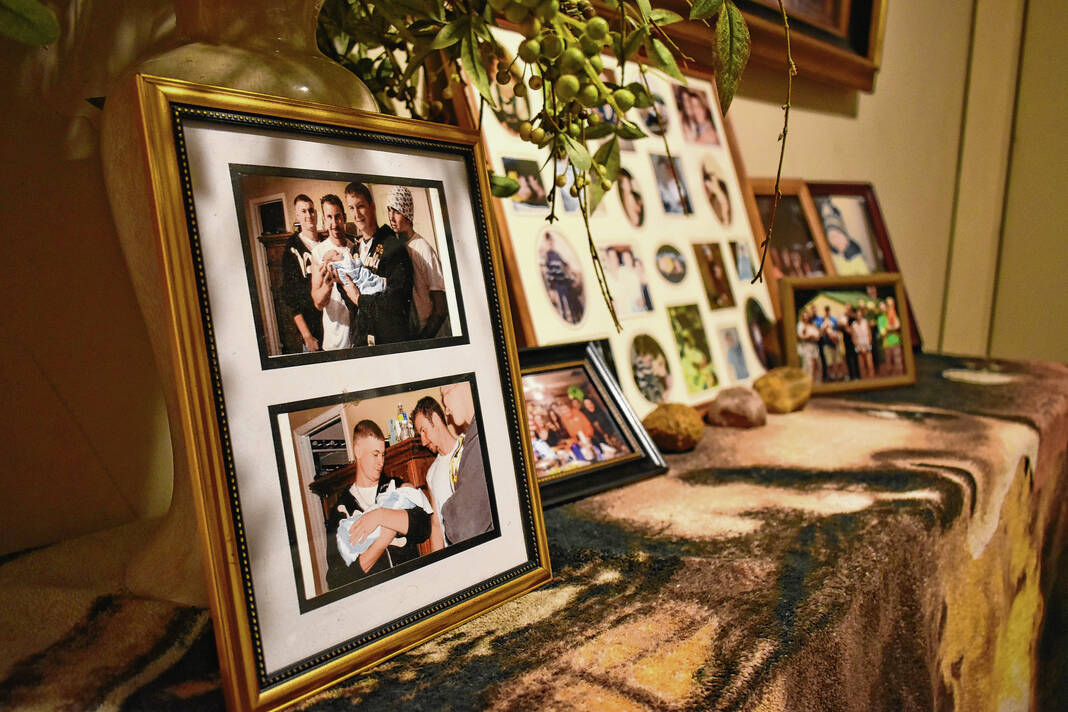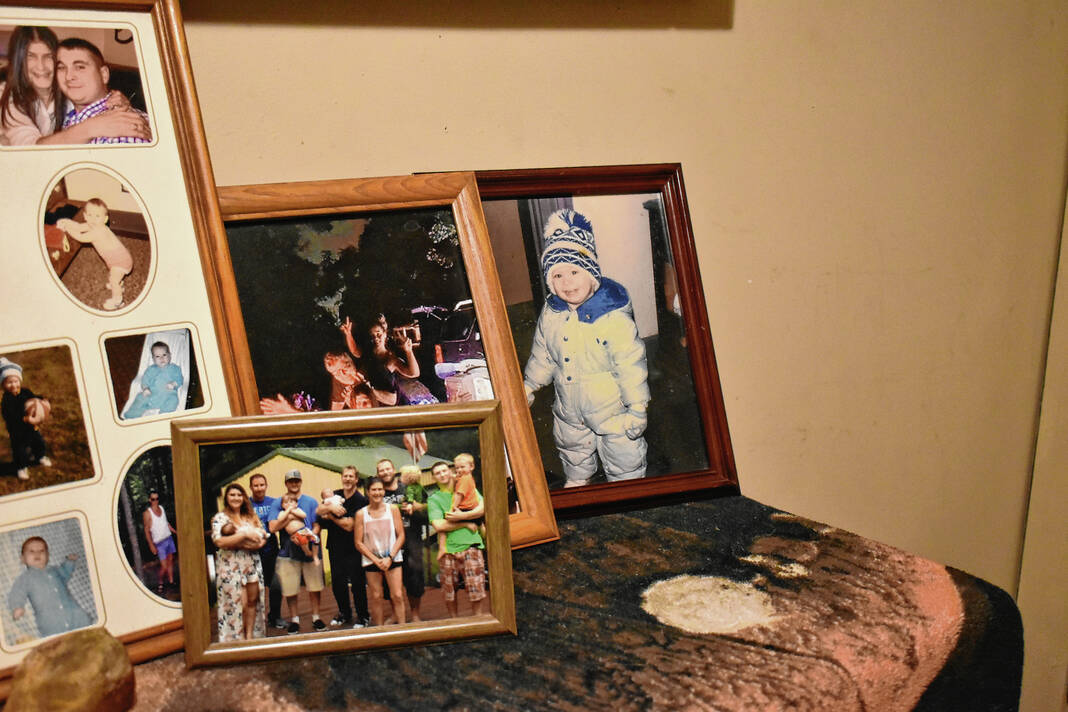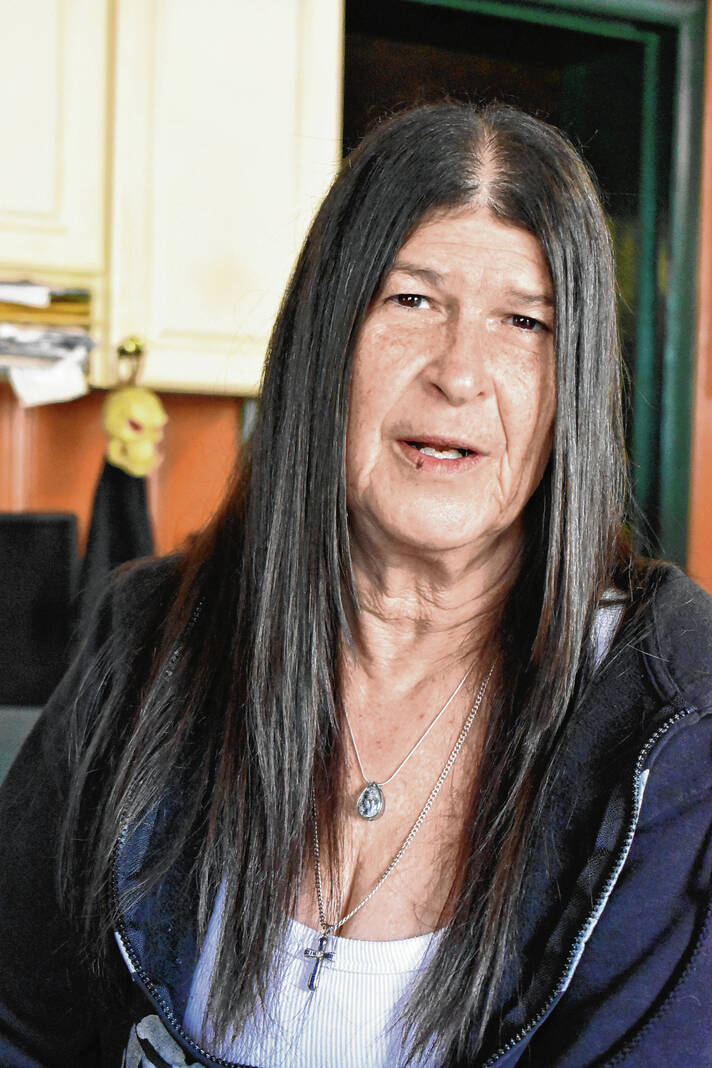A Trafalgar mother is speaking out about the settlement of a wrongful death lawsuit filed against the Greenwood Police Department after her son died in 2016.
Charles “Charlie” Todero, 30, died on June 11, 2016, about two weeks after being stunned with a Taser 16 times in three minutes by police during an incident on May 29, 2016. Todero’s family filed a lawsuit in federal court in May 2017, and the lawsuit named the city of Greenwood and three police officers — Brian Blackwell, Renee Elliott and Elizabeth Laut — saying the department violated Todero’s civil rights.
A $2 million settlement in the case was reached in October 2021, with the funds being split among members of Todero’s family. The complaint was formally closed in January.
Prior to the publication of this story, the Daily Journal reached out to Greenwood police to discuss the case and claims made by his family. Police Chief Jim Ison referred the Daily Journal to Greenwood’s legal department, which was unable to send a written response to questions before deadline on Thursday.
Passionate about family
Todero was always passionate about his interests, and his love of family. Growing up, he played baseball with the Greenwood Little League, Teresa Todero, his mother, said in a Tuesday interview at her home in Trafalgar.
“He ended up being a pitcher. He looked like a road runner running the bases,” she said. “I mean, his chest just sticking out. He was so little, and I’m like, ‘Oh my God.’ And so began the sports.”
When he was older, he played basketball and football for Greenwood schools He also played video games, mainly sports games, she said.
Fast forward several years later, and Todero moved back in with his mother in 2012. He enjoyed being back home, something that blew his mother away. One time he said even if he had a million dollars, he would not want to own his own place.
“I’m like, ‘Well if you wouldn’t want your own place for a million dollars, you must really want to be here,’” Teresa Todero said. “I’m like, ‘Well, OK then.’ We’re just gonna stay together ‘till he meets the right girl. I just realized how much family meant to him.”
Todero often said things that would blow people away, his mother said. Anything he was feeling, he would express it, sometimes loudly. His mother attributes this to his passion — a passion she has as well.
“Here I am fighting for Charlie, and I’m like, ‘Enough hasn’t been done, and nobody’s hearing me,’” Teresa Todero said.
What led up to the incident
Teresa Todero began fighting for her son nearly six years ago after he died in an Indianapolis hospital. But the chain of events began a week prior to the incident.
Todero’s father died on May 23, 2016, and his funeral took place on May 27. After his father’s funeral, he decided he wanted to stay with his grandmother in Indianapolis because he didn’t want her to be alone for the night. He did not have his phone, however, because he lost it two days before the funeral, Teresa Todero said.
On May 28, 2016, Todero decided he wanted to go back home to Trafalgar. His grandmother gave him around $60 for a cab from Indianapolis to Franklin, where his brother Tyler lived. Teresa Todero believes he hoped his brother would be able to take him from Franklin to Trafalgar.
What happened next came from Teresa Todero’s own research as she was searching for his wallet and ID, which were needed for his insurance. Teresa Todero called the cab company, and the cab driver said he had asked how much it would cost to get to Franklin. The driver said $80, and Todero didn’t have enough. While they were on Interstate 65, he asked the cab driver to pull over, and began to run on foot with a bible in his hand.
The cab driver called Indiana State Police and a trooper later picked him up, taking him to Vineyard Church, which was then located on Madison Avenue. An ISP incident report from May 28, 2016, shows that when a trooper spoke with Todero, he said he was walking and talking to “his Lord and savior Jesus Christ.”
Troopers later determined that Todero was not a threat to himself and did not warrant immediate detention. He told ISP he wanted to go to Greenwood to speak with a priest or “Godly man” about his father’s death, the report says.
“I’m going to say Charlie was in distress. What would be a short journey, turned out to be a long journey,” Teresa Todero said.
Teresa Todero believes he slept on the church’s patio, and after he left the facility he ran into Greenwood police.
The incident
Police responded on May 29, 2016, to reports of a man walking in and out of traffic on Madison Avenue near Camby Street. Multiple callers reported that Todero was attempting to get hit, and cars were braking and swerving to avoid him, according to accounts police gave of the event at the time.
When an officer first arrived on the scene, Todero was sitting on a curb reading a Bible, Steve Art, an attorney representing the family from the Chicago-based civil rights law firm Loevy & Loevy, said in 2016.
Todero was doing nothing more than jaywalking and he could have been easily restrained without excessive force right away when an officer arrived at the scene, he said.
Police accounts conflict with the events outlined in the lawsuit. Police described Todero’s actions as dangerous and erratic, and that an officer had no other options after Todero would not follow commands and after an officer tried to restrain him. That’s when the Taser was used the first time, officials said.
Police say the 15 additional times the Taser stun was administered were due to a weaker charge from the Taser because only one prong had entered Todero’s skin and he allegedly had continued to try to stand up. Police also stated that Todero had held up his Bible and claimed to be Jesus Christ as the Taser was being administered.
Attorneys for the family dispute this account, saying that the first charge from the Taser rendered Todero subdued and that body camera footage from the scene backed up the claim, officials said.
Following Todero’s death, police said an investigation found that officers hadn’t done anything wrong. An autopsy identified two pre-existing conditions — liver disease and Hepatitis C — as having led to swelling in Todero’s brain and having caused his death, officials said.
Attorneys for the family described those claims as “utter nonsense” at the time, saying that the symptoms of excessive Taser use were physiologically present in Todero during the two weeks he was in the hospital before he died.
High levels of lactic acid, certain proteins and potassium — the result of muscle contractions caused by electrocution — led to medical problems including multiple heart attacks and organ failure, the lawsuit said.
Family takes issue with son’s treatment
Teresa Todero also takes issue with statements made by officers during and after the incident that are captured in the court record.
Both the officer who tased Todero, Blackwell, and Laut, who arrived on scene later, were not wearing body cameras. While the Greenwood Police Department had body cameras at the time of the incident, lieutenants were not required to wear them at that time.
Elliot was the only officer wearing a camera did not turn it on until another officer asked if her camera was on. There is only footage of the scene after the tasing concluded, according to court documents.
Body camera footage shows that officers believed Todero was on drugs. On the recording Blackwell asked if he took bath salts or spice, documents show.
Todero used to have a drug addiction, but he had been drug-free for 3.5 years, his mother said. After he moved back home, he asked his mother to take him to a pharmacy to help him get a prescription for a drug that helped with his addiction, Teresa Todero said.
“He’d been in contact, on his own, to get drug-free,” she said. “… I got to see a whole new improved Charlie.”
After Todero was taken to the hospital, body camera footage recorded officers joking about dissecting him and continuing to suggest he was on drugs. Text messages between officers showed them joking about meeting Jesus.
A text message also mocked Todero’s condition, Teresa Todero said. “‘OH MY BACK, MY BACK!!!!!!’” the message said, according to court documents.
Hearing the jokes as Todero was laying in a hospital bed was painful, his mother said.
“Are they trying to help Charlie? No, absolutely not,” Teresa Todero said.
Settlement was a statement
Teresa Todero says she did not sue the city for the money — but to expose the facts about what her son went through. Getting a settlement was a statement, she said.
She decided to speak out after the settlement because it is an outlet for her grief.
“Carrying Charlie’s memory and the loss is is horrific … but to carry their lies, their jokes on top of it, I cannot,” Teresa Todero said. “It’s too painful. It doubles my pain. This isn’t normal.”
In a statement given to the Daily Journal after the initial publication of the settlement, Ison said the department would continue to work closely with mental health providers to ensure officers have the training needed to respond appropriately.
“Law enforcement agencies across the country are experiencing a need for additional resources including specialized training on mental health crisis,” Ison said. “Our agency will continue to work closely with regional mental health professionals to ensure that our officers have the training needed to respond appropriately.”
Attorneys for the family have argued that the Greenwood police needed to have clear policies on Taser use, have better training and oversight, and must discipline officers who use Tasers inappropriately.
A question on how the taser policy has changed since the incident is among those not answered by Greenwood’s legal department by deadline.
Blackwell and Laut still work for Greenwood police, however, Elliot was not listed as an employee of the city last year, according to employee compensation records on Indiana Gateway.


